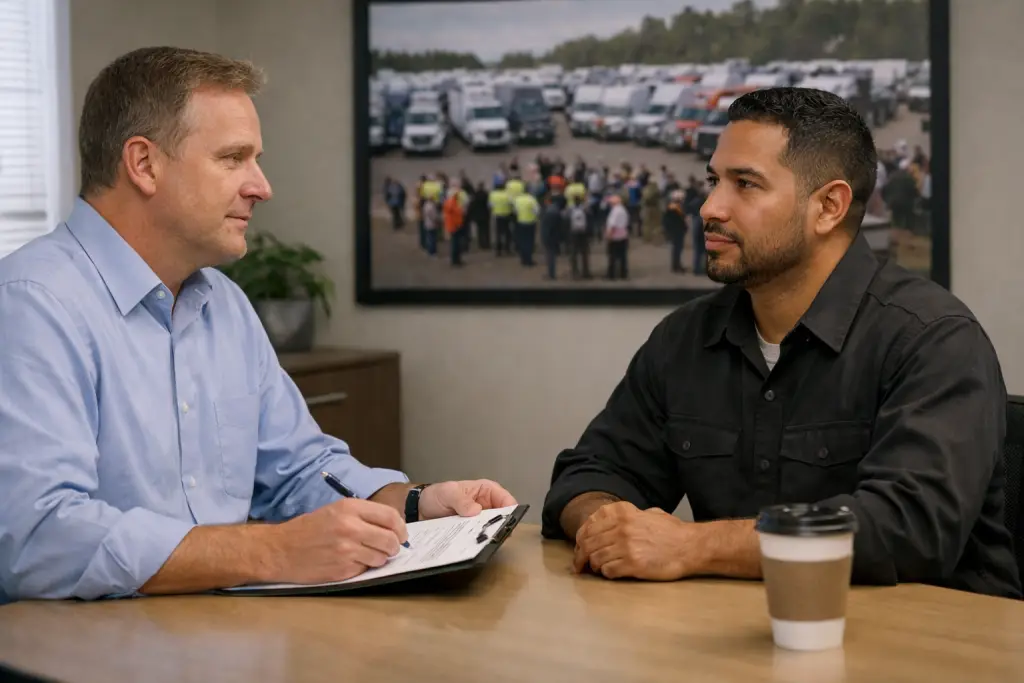According to the National Center for Charitable Statistics, approximately 1.54 million non-profits operate in the United States, engaging over 63 million volunteers annually. With this massive volunteer workforce comes significant responsibility: research from the National Center for Victims of Crime shows that proper background screening could have prevented up to 40% of reported incidents involving volunteers.
In this guide, we'll explore the importance of background checks for non-profits, how to conduct them effectively, and the unique considerations involved when vetting volunteers. Whether you're an HR professional managing a large non-profit or a small community organization leader, this article will equip you with the knowledge to vet volunteers safely and efficiently.
Key Takeaway
- Background checks are essential for non-profits to ensure volunteer safety and maintain organizational integrity.
- Various checks, such as criminal history and SSN traces, help non-profits identify potential risks associated with volunteer roles.
- Developing clear policies and partnering with reliable screening agencies streamline the background check process.
- Legal compliance and transparency are key in balancing safety and inclusivity when conducting background checks.
- Non-profits must navigate challenges like limited resources while maintaining a robust vetting process to protect their mission and trust.
Introduction
In today's non-profit landscape, volunteer screening isn't just a precaution—it's a necessity. A 2022 study by the National Council of Nonprofits revealed that organizations with comprehensive background check programs experienced 60% fewer safety incidents than those without such protocols. This guide provides evidence-based strategies for implementing effective volunteer screening procedures while maintaining organizational efficiency and volunteer engagement.

The Critical Role of Background Checks
Statistical Evidence
Background checks serve as a protective measure for non-profits, offering data-driven insights into their effectiveness:
- 85% of non-profits conduct background checks: This statistic underscores the widespread recognition of their importance.
- 45% reduction in liability claims: Comprehensive screening can prevent costly legal issues.
- 7% of applications with serious misrepresentations: Highlights the necessity of vetting to uncover potential risks.
Risk Assessment Matrix
Different volunteer roles carry varying levels of risk, necessitating tailored screening approaches:
- Low Risk: Administrative or public-facing roles generally pose minimal risk, allowing for more basic screening measures.
- High Risk: Positions involving direct interaction with minors, access to sensitive information, or unsupervised contact require thorough checks due to the potential for significant harm or liability.
- Medium Risk: Roles with supervised client interaction or access to confidential information still require careful vetting but may not need as extensive checks as high-risk roles.
Types of Background Checks for Volunteers
When vetting volunteers, the types of background checks you conduct can make all the difference in ensuring your organization’s safety and integrity. Different roles may require different levels of scrutiny, but here are some common checks non-profits employ:
1. Criminal History Verification
Ensuring volunteers do not have a criminal past that could pose a risk is crucial:
- National Criminal Database Search: Provides a broad overview across jurisdictions.
- County-Level Records: Offer detailed insights into local offenses.
- Federal Records Search: Important for identifying federal crimes.
- Sex Offender Registry Check: Mandatory for any role involving children or vulnerable adults.
2. Identity Verification
Confirming a volunteer’s identity helps prevent fraud and ensures accurate background check results:
- SSN Trace and Validation: Verifies identity and flags discrepancies.
- Address History Review: Helps confirm stability and identify potential red flags.
- Government ID Verification: Ensures authenticity of identification documents.
3. Specialized Checks
Role-specific checks provide additional layers of security:
- Motor Vehicle Records: Essential for positions involving driving responsibilities.
- Credit History: Important for roles handling finances.
- Education/Employment Verification: Confirms qualifications and past experience.
- Professional License Verification: Ensures credentials are valid and up-to-date.
Implementation Framework
Step-by-Step Process
- Policy Development: Establish clear screening criteria and standards to ensure consistency and fairness across the organization.
- Legal Compliance: Adhere to federal (FCRA), state, and EEOC regulations to avoid legal pitfalls.
- Technology Integration: Leverage digital tools for efficient application processing, automated workflows, and secure data handling.
Cost Management Strategies
Managing costs without compromising on thoroughness is vital:
- Utilize bulk discounts from screening providers.
- Explore grant funding specifically aimed at enhancing safety measures.
- Partner with reputable providers who offer cost-effective solutions.
Best Practices and Innovation
Modern Screening Trends
Stay ahead by adopting innovative practices:
- Implement real-time monitoring systems that alert organizations to new criminal activity post-hire.
- Use digital identity verification tools for faster, more reliable results.
- Consider continuous screening programs that regularly update background information.
Efficiency Metrics
Measure success through key performance indicators:
- Keep dispute rates low (<2%) by ensuring accuracy in screenings.
- Aim for quick turnaround times (average 48 hours) to maintain volunteer engagement.
- Strive for high first-pass completion rates (95%) to minimize delays.
Legal and Ethical Framework
Compliance Requirements
Ensure all procedures are legally sound:
- Obtain written consent before conducting checks.
- Provide pre-adverse action notices if results may affect volunteer placement.
- Establish transparent appeal processes for volunteers contesting findings.
Privacy Protection
Protect volunteer data with robust security measures:
- Implement secure storage systems with limited access protocols.
- Develop transparent data retention policies and secure disposal procedures once data is no longer needed.
Challenges in Non-Profit Background Checks
While limited resources can pose significant challenges for non-profits conducting background checks, strategies exist to mitigate these constraints. Non-profits can explore partnerships with local businesses or seek grants specifically aimed at enhancing volunteer management capabilities. Additionally, utilizing volunteer management platforms offering affordable background check services can help streamline the process without compromising thoroughness or compliance.
Balancing inclusivity and safety is another critical challenge. Non-profits strive to create an inclusive environment, welcoming volunteers from diverse backgrounds. However, this means navigating the thin line between being open to all and ensuring the safety of those they serve. It's essential to implement fair processes that do not inadvertently exclude individuals based on past mistakes while still protecting the organization's integrity and the well-being of its beneficiaries. Finding this equilibrium requires thoughtful policies and a nuanced understanding of each volunteer candidate's situation.
Conclusion
Investing in effective volunteer screening protects your organization and enhances its reputation and operational efficiency. By following this guide's framework, non-profits can develop robust programs that safeguard their mission while fostering a safe environment for all involved.
Action Steps
- Regularly review and adjust practices annually to stay current with legal requirements and industry best practices.
- Conduct an audit of current practices to identify gaps.
- Develop or refine policies based on identified needs and risks.
- Select technology solutions that align with organizational goals.
- Train staff thoroughly on new procedures to ensure smooth implementation.
- Implement continuous monitoring systems for ongoing safety assurance.
FAQs about Non-Profit Background Checks
Will a DUI come up on a background check for volunteers?
Yes, DUIs typically appear on criminal history checks. Whether this is an issue depends on the role and your organizational policies. Positions involving driving will require extra scrutiny.
Do background checks include drug tests?
Not automatically. Drug tests are separate and require explicit consent. Consider them for roles where safety or legal compliance is a concern.
What steps are involved in an SSN trace background check?
An SSN trace identifies addresses linked to a volunteer’s Social Security Number. It helps locate jurisdictions for further criminal searches, providing a more comprehensive screening.
How long do background checks typically take to process?
On average, it takes three to five business days, but times vary based on the depth of the check and any additional verification needed. Plan to accommodate any delays.
Additional Resources
- Background Check Best Practices & Challenges
- Best Practices for Nonprofit Volunteer Background Checks
- Non-Profit Background Checks: Best Practices for Organizations
- Best Practices for Nonprofit Screening
- Legal Considerations for Background Checks

GCheck Editorial Team
Meet the GCheck Editorial Team, your trusted source for insightful and up-to-date information in the world of employment background checks. Committed to delivering the latest trends, best practices, and industry insights, our team is dedicated to keeping you informed.
With a passion for ensuring accuracy, compliance, and efficiency in background screening, we are your go-to experts in the field. Stay tuned for our comprehensive articles, guides, and analysis, designed to empower businesses and individuals with the knowledge they need to make informed decisions.
At GCheck, we're here to guide you through the complexities of background checks, every step of the way.





